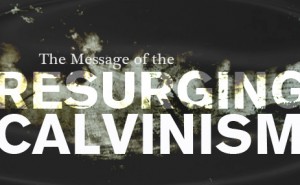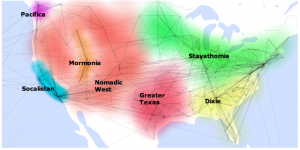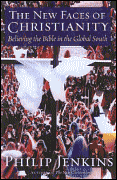 James Cameron’s Oscar winning film Avatar may have broken new technological ground, but it perpetuates an age old philosophy. Philosophical Dualism draws a sharp distinction between the material and the spiritual realms, between the visible and the invisible. Dualistic worldviews inevitably end up exalting one realm or the other, the spiritual or the material.
James Cameron’s Oscar winning film Avatar may have broken new technological ground, but it perpetuates an age old philosophy. Philosophical Dualism draws a sharp distinction between the material and the spiritual realms, between the visible and the invisible. Dualistic worldviews inevitably end up exalting one realm or the other, the spiritual or the material.
Philosophical Dualism
Plato, for instance, taught that the spiritual realm, the realm of the Forms, was the really real and that the material realm was just the real, a mere replication, a copy, of the Forms. The Forms are superior to the inferior things they create. The classic example is the Form of a chair in the spiritual, which determines the chair-ness of a chair in the material world. The Form of the chair is superior to the chair itself. The material world is a derivative of the spiritual world. The spiritual is greater the material world is lesser.
What’s is an “Avatar”?
This dualism is also played out in Eastern worldviews like Hinduism and Buddhism, where the goal is to escape th e material world and enter the spiritual world of Nirvana or the Brahman. Dualism also peaks its head out in Avatar, a film where humans leave their world in order to enter the world of Pandora, the home of the Na’vi. In fact, humans not only enter the world of Pandora but also the very bodies of the Na’vi. They become “avatars” which represent their humanity in Na’vi form. In Hinduism, an avatar is not material. It is a manifestation. Avatars don’t sweat or die. One of the Vedas tells the story of a wife who was asked to distinguish between her husband and an avatar of her husband. They looked and acted exactly alike. In the end, she discerned her true husband by the fact that the avatar did not sweat. An avatar is a microcosm of dualism, the really real being hidden by the real, the spiritual manifested in the material.
e material world and enter the spiritual world of Nirvana or the Brahman. Dualism also peaks its head out in Avatar, a film where humans leave their world in order to enter the world of Pandora, the home of the Na’vi. In fact, humans not only enter the world of Pandora but also the very bodies of the Na’vi. They become “avatars” which represent their humanity in Na’vi form. In Hinduism, an avatar is not material. It is a manifestation. Avatars don’t sweat or die. One of the Vedas tells the story of a wife who was asked to distinguish between her husband and an avatar of her husband. They looked and acted exactly alike. In the end, she discerned her true husband by the fact that the avatar did not sweat. An avatar is a microcosm of dualism, the really real being hidden by the real, the spiritual manifested in the material.
Humans discover that the spiritual world of the Na’vi is peaceful, serene, and beautiful. When you walk by flowers, they perk up and glow, mountains float in clouds, and everyone gets along. But the human world is depicted as a place of war and conflict. The marines have come to extract a priceless ore worth 20mL/Kilo from beneath the sacred tree of the Na’vi. Director James Cameron shows us how materialist humans exploit the spiritual paradise of the Na’vi, Pandora. The way of the Na’vi is depicted as superior to the way of the humans. This is dualism, divorcing the spiritual world from the material world.
Dualist Christianity Leads to Materialism
Now, when you do this you end up exalting one or the other, the material or the spiritual. Pandora exalts the spiritual world of Pandora. But in America we exalt the material world. We also draw a sharp distinction between the spiritual and the material. It’s no news that we are a consumer culture. What has been news is that our excessive buying, selling, and debt-making has led to a housing market crash, which lead to an economic recession, which led to record-setting unemployment. What happened? Very simply, our appetites for material things extended beyond our budgets and we just blew by our fiscal responsibility, buying and selling unethically. In our lust for material possessions, we have exalted the material world at great expense. Enter the Recession. We’ve gone into great debt, credit card and other, because our dualism has lead to an exaltation of the material world. Dualism leads to exaltation of either the spiritual or the material. We’ve chosen the material.
See, when Dualism divides reality up into the spiritual and the material realms, one of them has to become more important, because there is no reason to hold them together. American Christians are materialist Christians. We have created a dualist Christianity where we exalt the material over the spiritual. We are functional dualists. We separate faith in Christ from life in culture, theology from money, all in the name of Christianity! This is hardly Christianity at all; it is a false gospel that Evangelicals have bought, lived, and preached, affecting not only our approach to possessions but also our neglect of the environment. May we heed the unintended lesson of Avatar and retrieve a biblical Christianity that places money, possessions, and the earth in its proper place under the lordship of Christ.
*This article is adapted from a recent talk at The Missional Living Conference at Redeemer Church. A&V forthcoming.



